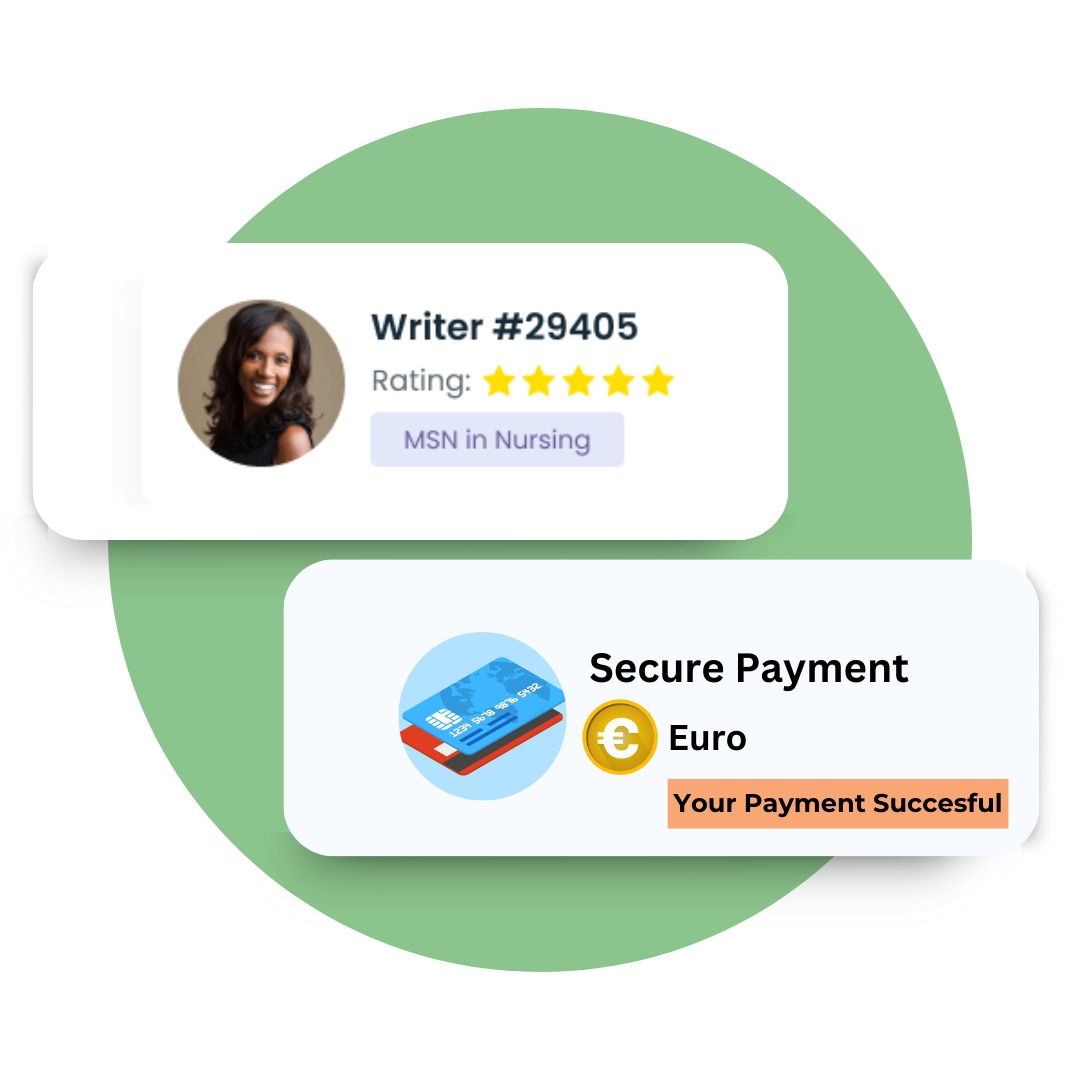Don’t worry if you are overwhelmed by your assignment work, just follow these steps to take help.

Provide details of your 7CO03 assignment including additional requirements like university guidelines and word count.

After filling out the form we will give you the option to select a writer of your choice. Pay for the quote and he will start writing your order.

You can download the completed order from the inbox of your mail. If you are having any types of trouble you can contact our customer care.
You get assignments on 7CO03 units at the most affordable prices. Sign up to understand complex concepts and craft a perfect assignment without paying a lot.
Our experts offer step-by-step coding assignment help. Students will not only score well but will also learn to write code using the solution as a reference.
A perk of seeking homework help from us is that you can ask our support team for revisions without paying any cost. Get your papers rectified for FREE.
Our experts have extensive experience and ensure 100% original solutions. You will get a well-written & comprehensive solution when you seek.
Are you in search of trusted and reliable CIPD Level 7CO03 assignment help services in the UAE? We are among the leading online writing service providers, dedicated to delivering high-quality CIPD assignment assistance to students at all levels.
Our experts at cipdassignmenthelper.ae understand the challenges students face when it comes to academic assignments. With our top-notch A-level assignment help, you can find the right writing services tailored to your needs. We prioritize thorough research and high academic standards, ensuring you receive exceptional CIPD assignment answers. Feel free to browse our website to explore our offerings.
In addition to CIPD assignments, we provide a variety of writing services, including essays, to support your career aspirations. We also offer comprehensive exam support, especially for academic-related challenges, including preparation for university entrance exams. Don’t waste any more time – place your order today
Meaningful voice is the opportunity to contribute to decisions that affect the working environment, well-being, or environment of someone. There are several ways by which it can be done:
The act of involving employees in the making of decisions leads to trust within an organisation. It helps create general positive morale among workers, builds a sense of ownership and engagement in terms of workplace attitudes, and leads to better decisions and outcomes for all.
It asks for reflection over how honest, ethical, and brave you are in your actions at work. Personal integrity is just being true to yourself and honest even when it hurts. Professional courage is taking the hard choice, speaking out if something just doesn’t feel right, and standing up for what is right, which may be uncomfortable. By developing an understanding of these qualities, you can make estimations about how you might handle an ethical situation and make out which areas you need to improve so as to respond more responsibly and fairly in your professional life.
When working with representatives from different teams, backgrounds, and areas of expertise, the possible collaboration can be across organisation boundaries, cultures, and disciplines. Differences are helpful because they provide a new view and perspective on problems with solutions and ideas. Respect for and learning about various viewpoints will make outcomes better as teams will become more innovative and creative. This would create stronger relations and help develop a more inclusive and productive work environment.
Self-management is crucial for achieving optimal outcomes in any organisation. Key skills such as self-awareness, self-management, and continuous self-improvement are essential for all employees, especially those in leadership roles.
Continuous self-improvement reflects a commitment to lifelong learning and skill development. By consistently seeking opportunities to grow, employees can remain competitive and become their best selves. These skills are particularly important for leaders, as they set the tone for their teams and contribute significantly to organisational success.
Business acumen is the capacity to comprehend business operations and make informed decisions that drive performance. This skill can yield significant commercial benefits and enhance resilience within an organisation.
Business acumen helps identify new business opportunities by providing insights into market trends and customer needs. It also equips individuals with the knowledge needed to understand what drives performance, facilitating better resource allocation decisions.
Furthermore, strong business acumen fosters innovation, enabling the generation of new ideas for value creation.
In terms of resilience, business acumen offers a deeper understanding of how organisations respond to shocks and stresses. This knowledge allows for early identification of potential problems and the development of proactive contingency plans, ensuring that organisations can adapt and thrive in changing environments.
To achieve and maintain challenging business outcomes, demonstrating personal effectiveness, ethics, and business acumen is vital.
Personal effectiveness encompasses managing time, resources, and performance to meet organisational goals. Setting realistic objectives and consistently monitoring progress is essential for driving results.
Ethics play a critical role in business, providing a foundation for decision-making and conduct. Adhering to ethical standards builds trust among stakeholders and enhances an organisation’s reputation and credibility.
Business acumen involves understanding the operational aspects of a business and making informed decisions to achieve desired outcomes. Proficiency in interpreting financial statements and analyzing business data is crucial for effective decision-making.
By embodying personal effectiveness, ethical behaviour, and business acumen, individuals can achieve career success and contribute positively to their organisations, aligning their efforts with the broader vision, values, strategies, and plans of the business.
I possess a strong curiosity and passion for deep learning, which significantly enhances my personal effectiveness. This mindset has enabled me to develop essential skills, such as effective time management, prioritization, and communication. Moreover, I have learned to navigate difficult situations and resolve conflicts adeptly, which has improved my overall performance in my role. By continuously seeking new knowledge, I stay updated with the latest trends and developments in my field, further contributing to my effectiveness as a professional.
Continuing professional development (CPD) is vital for maintaining a competitive edge and keeping abreast of industry trends. To facilitate this, I dedicate time to learning new skills and refreshing existing ones. CPD can take many forms, such as attending conferences, reading articles, or enrolling in online courses, with the key being to ensure relevance to my professional growth.
To implement CPD effectively, I set aside regular intervals—weekly or monthly—for planned learning activities, whether it’s reading or attending seminars. After each activity, I take time to reflect on my learnings and consider how I can apply them in my work. This reflective practice enhances the effectiveness of the learning experience.
Additionally, I identify specific areas for improvement and create a structured plan to address them. For instance, if I aim to enhance my presentation skills, I might enroll in a public speaking course. Again, reflection on these learning experiences is crucial to solidifying my understanding and effectiveness.
Networking to enhance your career involves building and maintaining relationships with people both inside and outside your organisation. By connecting with colleagues, industry professionals, mentors, and experts, you can share knowledge, gain advice, and discover new opportunities for growth. These relationships can provide insights into best practices, career advancement, and personal development. Networking also helps you stay updated on industry trends, which can improve your work performance and decision-making. By leveraging these connections, you can contribute to the success of your organisation, increase your influence, and advance in your career.
Knowledge sharing and learning in an organisation lead to success. The process of giving and receiving information, experience, and skills from fellow workers fosters a sense of collaboration that can better aid in problem-solving and decision-making. Sharing best practices, lessons learned, or new insights can avoid repetition of mistakes and performance improvements. This continuous learning environment fuels innovation and enables the organisation to adapt to evolving needs and challenges. Moreover, in light of the themes covered earlier, employees empowered to share knowledge are more likely to feel highly engaged and valued, which leads to greater motivation and productivity and consequently supports the success of the organisation.
Effective decision-making, especially on complex issues, requires ownership and the willingness to correct mistakes. Understanding my decision-making process enables me to make better choices and avoid unnecessary complications. Here are some strategies for improving decision-making:
Influencing others requires adapting my approach to fit the audience. Recognizing different influencing styles is essential for effective engagement.
Promoting organisational improvement often hinges on courage, political acumen, and a willingness to challenge existing norms.
Evidence-based critical thinking in your work will mean making decisions and solving problems based on reliable data or facts rather than assumptions or personal opinions. It, therefore, involves gathering relevant information that concerns an issue, analyses it carefully, and takes consideration of alternative perspectives before arriving at the conclusion. Critical thinking will involve evaluating the quality of evidence to ask any questions on bias and considering the potential effect of various solutions. This makes you take a well-informed, logical, and most probably an effective decision-a stand to take in professional life.
See the success stories of actual customers in the United Arab Emirates who used our CIPD 7CO03 writing service—your secret to academic achievement!
M
Mohammed Al-Sayed

The Case Study Assignment Help service was a game-changer for my CIPD Level 7 project. The writers were knowledgeable about HR practices and provided detailed analysis that impressed my professors. Highly recommend!
A
Abdul Kareem

Studying CIPD at Middlesex University Dubai, I was amazed at the depth and quality of the CIPD Assignment Helper provided me. Thanks to their work that aligned perfectly with my curriculum giving me high pass grades in my CIPD Level 7 assignments
S
Sanaa Hussain

As a part-time student at the University of Bolton, RAK Campus working on CIPD level 7, I needed reliable help. CIPD Assignment Helper provided consistent support, making it possible for me to excel without stressing out even on tight deadlines.
N
Neelofer

I was looking for affordable CIPD Level 7 help while studying at Skyline University College. CIPD Assignment Helper offered great value, and their professional approach left a lasting impression. They’re worth every penny!
J
Jameela

I needed help with my CIPD Level 7 assignments and CIPD assignment helper exceeded my expectations with their UAE-focused approach. They are well-guided with the rules and guidelines of UAE universities.
N
Nadine

Studying CIPD Level 7 at American University of Ras Al Khaimah was overwhelming until I found CIPD Assignment Helper. Their experts provided structured, high-quality work that demonstrated key elements of my 7OS03 unit and helped me excel. I’m beyond grateful!
Struggling with your CIPD 7CO03 assignments? Our expert tutors in the UAE offer tailored assistance to help you excel. Don’t let challenges hold you back – reach out for support today!
